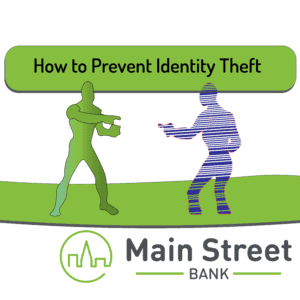
Identity theft is the criminal act of impersonating another person for financial gain. To accomplish this, the thief needs access to information that can let them pass as their victim in an official setting. Known as Personally Identifiable Information (PII), this includes your social security number and date of birth, as well as discreet information such as your mother’s maiden name. Identity theft prevention is all about protecting this private information from any potential criminals. Here, you can learn about some safe practices to protect your identity.
How Identity Theft Happens
Once a criminal gets your private information, they can use it to commit identity theft. The thief can steal money, charge items to your credit cards, and much more. They might open new financial accounts or access existing accounts in your name. In many cases, they will use new accounts under your name to rack up expenses. Once the identity thief has accomplished what they want, then they escape with the profits, leaving you to foot the bill. Sometimes identity theft is ongoing, and the criminal will stick around for a long time before they are caught.
Waste no time if you suspect that your identity has been stolen.
Steps to Help you Recover from Identity Theft
How Identity Thieves Steal Information
There are many ways that criminals try to steal your identity online, including hacking your computer, online account takeovers, phishing attempts, ransomware attacks, and more. Identity theft is made possible when someone gains access to private information.
Identity thieves may try to get Personally Identifiable Information in one of these ways:
- Stealing wallets or purses with everything in them.
- Taking mail from your mailbox, especially bank statements and credit card statements.
- Diverting your mail by using a change of address form at the Post Office.
- Searching through your trash for tossed copies of statements.
- Posing as a representative of your financial institution on the phone and asking about your account
- Gleaning seemingly innocent information you may share through social networking websites
Good Habits to Prevent Identity Theft
Protecting your identity is a matter of guarding your private information and the methods of access to your online accounts. You can accomplish this by maintaining strong security online, as well diligently protecting the private information that you carry with you. Practice these habits to protect yourself from identity theft:
Online Security Habits
- Use unique passwords for all sites
- Use Multi Factor Authentication to secure your accounts from hackers. Learn Why Multi Factor Authentication is important.
- Don’t click suspicious emails and unknown links.
- Set up alerts on your cards to be notified for any transactions.
- Be cautious of the information you share on social media sites and avoid answering any online “quizzes” that ask for details like your address growing up or birthdate.
Learn how to protect yourself online.
Internet Security and Online Banking Checklist
Physical Security Habits
- Keep close track of your credit cards.
- Avoid carrying your social security card and passport unless necessary.
- Keep your pin private and difficult to guess. Don’t share it, and use a unique number that can’t be linked to you.
- Properly shred physical documents and sign up for digital documents whenever available.
- Guard against mail theft by mailing payment envelopes from a collection box instead of raising the flag on your home mailbox.
- Periodically review financial statements to keep a look out for unknown transactions. If you see one, call the institution immediately.
- Keep an eye out for card skimming devices at ATMs and gas stations. Learn How to Look for Card Skimming Devices.
While there are no guarantees that these steps will prevent credit identity thieves from attacking you, the harder you make it to steal your identity, the less likely you are to become an identity theft victim. By staying alert to the goals of identity thieves and diligently protecting your private information, you can maintain security in your identity and accounts online.

